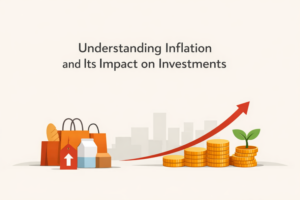The Income-Tax Bill, 2025: How India’s Biggest Tax Reform in 60 Years Could Affect Your Money

On August 11, 2025, the Lok Sabha passed the Income-Tax Bill, 2025, which will replace the old 1961 Act from April 1, 2026. The goal? Simpler rules, lower taxes for many, and a more digital, transparent system. Whether you’re a salaried professional, a business owner, or an investor, this bill will change how you plan your finances.
Why a New Tax Law Was Needed
For over six decades, the Income-Tax Act, 1961 grew into a 5-lakh-word tangle of amendments. It was complicated, costly to comply with, and often led to disputes. The 2025 Bill aims to:
- Simplify language and remove outdated sections
- Reduce litigation through clearer rules
- Go digital-first, with more faceless assessments
- Unify the tax year, ending confusion between “previous” and “assessment” years
- Make compliance easier for individuals and businesses
What’s Changing for Individuals
Here’s what the new default tax regime means for your pocket:
New Income Tax Slabs (FY 2025-26, AY 2026-27)
| Annual Income (₹) | Tax Rate |
|---|---|
| 0 – 4,00,000 | Nil |
| 4,00,001 – 8,00,000 | 5% |
| 8,00,001 – 12,00,000 | 10% |
| 12,00,001 – 16,00,000 | 15% |
| 16,00,001 – 20,00,000 | 20% |
| 20,00,001 – 24,00,000 | 25% |
| Above 24,00,000 | 30% |
Key perks:
- Higher basic exemption: ₹4 lakh (up from ₹3 lakh)
- Bigger rebate: Up to ₹60,000, making income up to ₹12 lakh effectively tax-free (₹12.75 lakh for salaried taxpayers with standard deduction)
- Fairer pension taxation for non-employees
- No need for complex deduction planning — focus shifts to higher take-home pay
💡 Impact: More disposable income for the middle class could boost spending, savings, and investments.
Key Changes for Businesses and Investors
The Bill isn’t just about personal taxes. It also reshapes corporate taxation and investment rules:
- TDS/TCS Simplification
- TCS on sale of goods removed from April 1, 2025
- Lower TDS on securitization trust income (10% from 25–30%)
- Easier “Nil” TDS certificates for those with no liability
- Extended Tax Holidays & Incentives
- Startup tax holiday extended to April 1, 2030
- Sovereign Wealth Fund & Pension Fund investment window extended to March 31, 2030
- IFSC benefits extended, including for offshore funds and leasing businesses
- FDI Boost in Insurance
- Limit raised from 74% to 100%, if all premiums are invested in India
- Uniform Capital Gains for FPIs
- 12.5% rate on all securities for Foreign Portfolio Investors
- Support for MSMEs
- Higher presumptive taxation thresholds (₹2 crore for businesses, ₹75 lakh for professionals)
- Bigger credit guarantee limits and harmonized definitions
Why This Reform Matters for India’s Economy
The government sees the Income-Tax Bill, 2025, as a pillar of its Viksit Bharat (Developed India) 2047 vision. Lower and simpler taxes should:
- Increase household spending power
- Attract more domestic and foreign investment
- Make compliance easier and reduce disputes
- Create a more predictable business environment
An Investment Friendliness Index for states, along with digital KYC reforms and easier merger approvals, will further improve India’s ease of doing business.
Expert Take
Tax professionals call this “India’s biggest simplification in decades.” The reduction in legal text alone (from 823 to 622 pages) makes it easier for the average person to understand. While some global tax issues like OECD’s minimum tax still need clarity, the overall direction is positive.
Key Takeaways
- August 11, 2025: Lok Sabha passes the Income-Tax Bill, 2025
- April 1, 2026: New law takes effect
- Middle-class taxpayers will see major relief
- Businesses get simplified compliance and longer investment windows
- India aims to be more investment-friendly globally
Disclaimer
The stocks mentioned in this article are not recommendations. Please conduct your own research and due diligence before investing. Investment in securities market are subject to market risks, read all the related documents carefully before investing. Please read the Risk Disclosure documents carefully before investing in Equity Shares, Derivatives, Mutual fund, and/or other instruments traded on the Stock Exchanges. As investments are subject to market risks and price fluctuation risk, there is no assurance or guarantee that the investment objectives shall be achieved. Lemonn (Formerly known as NU Investors Technologies Pvt. Ltd) do not guarantee any assured returns on any investments. Past performance of securities/instruments is not indicative of their future performance.







